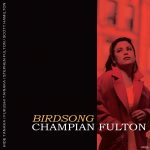I get a lot of music for my consideration, more than 325 new releases so far this year. Almost all of them are notable for something, and I’d like to give them their due. So every week, I’ll do quick hits on the releases of the preceding seven days. it’s a great writing exercise, and a lot of fun, too.
 Scientists place the origin of the Romany people in Rajasthan in the northwest of the Indian subcontinent. In this context, one might view Rez Abbasi’s Django-shift as the latest in a series of interrogations of the guitarist’s South Asian heritage with musicians such as pianist Vijay Iyer, saxophonist Rudresh Mahanthappa and vocalist Kiran Ahluwalia, his partner. But Django Reinhardt, a Belgian-born Roma, is also a sometimes-overlooked part of the jazz guitar heritage, too. Does that make “Django-shift” a tribute record? Maybe, but there’s no ventriloquism here, none of the distinctive chop-chop of the Manouch rhythm that drove Reinhardt’s “gypsy jazz,” and no violin foil, either. Abbasi favors the lightly electrified tone of his predecessor, but he occasionally rocks out, too. So does the band, which features Neil Alexander‘s electric keyboards and Michael Sarin‘s crisp, flexible drumming. Abbasi arranges “Django’s Castle” and “Douce Ambience” as lounge-y organ-trio features and Monk is invoked as often as Reinhardt, especially on the arrangement of Reinhardt’s “Diminishing.” On “Django-shift” Abbasi honors Django by being himself, and in so doing casts a fascinating new light on a player we shouldn’t forget.
Scientists place the origin of the Romany people in Rajasthan in the northwest of the Indian subcontinent. In this context, one might view Rez Abbasi’s Django-shift as the latest in a series of interrogations of the guitarist’s South Asian heritage with musicians such as pianist Vijay Iyer, saxophonist Rudresh Mahanthappa and vocalist Kiran Ahluwalia, his partner. But Django Reinhardt, a Belgian-born Roma, is also a sometimes-overlooked part of the jazz guitar heritage, too. Does that make “Django-shift” a tribute record? Maybe, but there’s no ventriloquism here, none of the distinctive chop-chop of the Manouch rhythm that drove Reinhardt’s “gypsy jazz,” and no violin foil, either. Abbasi favors the lightly electrified tone of his predecessor, but he occasionally rocks out, too. So does the band, which features Neil Alexander‘s electric keyboards and Michael Sarin‘s crisp, flexible drumming. Abbasi arranges “Django’s Castle” and “Douce Ambience” as lounge-y organ-trio features and Monk is invoked as often as Reinhardt, especially on the arrangement of Reinhardt’s “Diminishing.” On “Django-shift” Abbasi honors Django by being himself, and in so doing casts a fascinating new light on a player we shouldn’t forget.
 There are times on Champian Fulton’s new Birdsong when her vocals linger so far behind the beat that I feared that the pianist couldn’t stay with her. Except that Fulton is the pianist, and she’s terrific, channeling not only Errol Garner rhythmic games of chicken, but also such pre-bop masters as Teddy Wilson and Billy Kyle. Few instrumentalists play like this anymore since this elastic approach to rhythm was all but swept away by the bebop charge led by Charlie Parker, whose centenary today this release celebrates. It didn’t disappear entirely, though, surviving in the vocal styles of Dinah Washington, Nancy Wilson and Betty Carter, who took rhythmic elasticity to an extreme. Fulton has a lighter, less bluesy voice than those luminaries, but she uses it playfully and is a fearless improvisor. Her musicmaking fairly overflows with joy on this program of 11 songs associated by Parker and it’s often thrilling to hear her highwire act. Saxophonist Scott Hamilton is an old hand at this kind of material and Fulton’s father, Stephen, adds trumpet on a couple of songs. The rhythm team of bassist Hide Tanaka and drummer Fukushi Tainaka ticks along deferentially in a way that today’s more assertive rhythm sections abjure. If all this suggests a record that might have been made in, say, 1961, well, you’re not wrong. But there is something almost radical in the way Fulton and her mates bring to this material something that jazz could use more of these days: charm.
There are times on Champian Fulton’s new Birdsong when her vocals linger so far behind the beat that I feared that the pianist couldn’t stay with her. Except that Fulton is the pianist, and she’s terrific, channeling not only Errol Garner rhythmic games of chicken, but also such pre-bop masters as Teddy Wilson and Billy Kyle. Few instrumentalists play like this anymore since this elastic approach to rhythm was all but swept away by the bebop charge led by Charlie Parker, whose centenary today this release celebrates. It didn’t disappear entirely, though, surviving in the vocal styles of Dinah Washington, Nancy Wilson and Betty Carter, who took rhythmic elasticity to an extreme. Fulton has a lighter, less bluesy voice than those luminaries, but she uses it playfully and is a fearless improvisor. Her musicmaking fairly overflows with joy on this program of 11 songs associated by Parker and it’s often thrilling to hear her highwire act. Saxophonist Scott Hamilton is an old hand at this kind of material and Fulton’s father, Stephen, adds trumpet on a couple of songs. The rhythm team of bassist Hide Tanaka and drummer Fukushi Tainaka ticks along deferentially in a way that today’s more assertive rhythm sections abjure. If all this suggests a record that might have been made in, say, 1961, well, you’re not wrong. But there is something almost radical in the way Fulton and her mates bring to this material something that jazz could use more of these days: charm.
 Who knew that the 17 melody notes of “Moonlight In Vermont” exactly fit the 5-7-5 metrical pattern of haiku? Violinist Tomoko Omura did and built her arrangement of the overplayed standard around 17-beat rhythmic cycle. It’s one of the many felicities built into her new Outside in Music release Branches Vol. 1. Omura is a self-effacing leader, opening lots of room her airy rhythm section of guitarist Jeff Miles, Pablo Menares on bass and drummer Jay Sawyer and pianist Glenn Zaleski whose sparkling touch steals the show. Omura’s five originals , inspired by Japanese folktales, unfold with the clarity—and a bit of the mystery—of a Murakami short story. The comparisons don’t end there; “Branches Vol. 1” clocks in at a brisk 36 minutes, but it’s as light and refreshing as a bottle of sparkling rosé.
Who knew that the 17 melody notes of “Moonlight In Vermont” exactly fit the 5-7-5 metrical pattern of haiku? Violinist Tomoko Omura did and built her arrangement of the overplayed standard around 17-beat rhythmic cycle. It’s one of the many felicities built into her new Outside in Music release Branches Vol. 1. Omura is a self-effacing leader, opening lots of room her airy rhythm section of guitarist Jeff Miles, Pablo Menares on bass and drummer Jay Sawyer and pianist Glenn Zaleski whose sparkling touch steals the show. Omura’s five originals , inspired by Japanese folktales, unfold with the clarity—and a bit of the mystery—of a Murakami short story. The comparisons don’t end there; “Branches Vol. 1” clocks in at a brisk 36 minutes, but it’s as light and refreshing as a bottle of sparkling rosé.
 It’s tempting to call Matt Wilson the Clown Prince of Jazz, but that misses the point. Don’t get me wrong, there are moments on his new Palmetto Records release Hug! that are laugh-out-loud funny, and he fairly telegraphs as much with titles such as “Space Force March” (in a medley with Sun Ra’s “Interplanetary Music”) and “Man Bun.” That’s a bit of misdirection from the ebullient drummer who instead plants his flag with the title smack in the middle of the 11-cut program. It’s “Joie de Vivre” by saxophonist Dewey Redman, in whose band Wilson broke in. Little surprise then that the music’s Ornette Coleman flavor goes beyond Wilson’s quartet lineup of two horns, bass and drums, one that Coleman popularized. Like Don Cherry, puckish cornetist Kirk Knuffke eschews the trumpet for a more pungent instrument, here the cornet. Jeff Lederer rolls out a velvety tenor saxophone tone on the dapper Redman tune, pipes brightly on soprano on the earwormy “Hamba Kahle” (not the Abdullah Ibrahim tune) and plays a droll clarinet on “King of the Road” (yes, that one). Chris Lightcap, replacing Paul Sikivie, adds his usual bounce on bass. As for Wilson, has any drummer lifted a band like this since Billy Higgins? On sticks or brushes, his beat is almost giddy; he’s rhythmic helium. No bandleader in jazz communicates the unbounded joy of living and making music than Wilson does. Coming in the middle of the swirling dread of 2020, Matt Wilson’s bighearted, thoroughly wonderful “Hug!” might be the most subversive release of the year.
It’s tempting to call Matt Wilson the Clown Prince of Jazz, but that misses the point. Don’t get me wrong, there are moments on his new Palmetto Records release Hug! that are laugh-out-loud funny, and he fairly telegraphs as much with titles such as “Space Force March” (in a medley with Sun Ra’s “Interplanetary Music”) and “Man Bun.” That’s a bit of misdirection from the ebullient drummer who instead plants his flag with the title smack in the middle of the 11-cut program. It’s “Joie de Vivre” by saxophonist Dewey Redman, in whose band Wilson broke in. Little surprise then that the music’s Ornette Coleman flavor goes beyond Wilson’s quartet lineup of two horns, bass and drums, one that Coleman popularized. Like Don Cherry, puckish cornetist Kirk Knuffke eschews the trumpet for a more pungent instrument, here the cornet. Jeff Lederer rolls out a velvety tenor saxophone tone on the dapper Redman tune, pipes brightly on soprano on the earwormy “Hamba Kahle” (not the Abdullah Ibrahim tune) and plays a droll clarinet on “King of the Road” (yes, that one). Chris Lightcap, replacing Paul Sikivie, adds his usual bounce on bass. As for Wilson, has any drummer lifted a band like this since Billy Higgins? On sticks or brushes, his beat is almost giddy; he’s rhythmic helium. No bandleader in jazz communicates the unbounded joy of living and making music than Wilson does. Coming in the middle of the swirling dread of 2020, Matt Wilson’s bighearted, thoroughly wonderful “Hug!” might be the most subversive release of the year.
Two other releases that dropped yesterday, Mike Fahie’s “Urban(e)” and Manuel Valera’s “José Martí En Nueva York,” are big band dates that are so notable that they’ll receive their own review sometime this week–if the power stays on.
Leave a Comment
